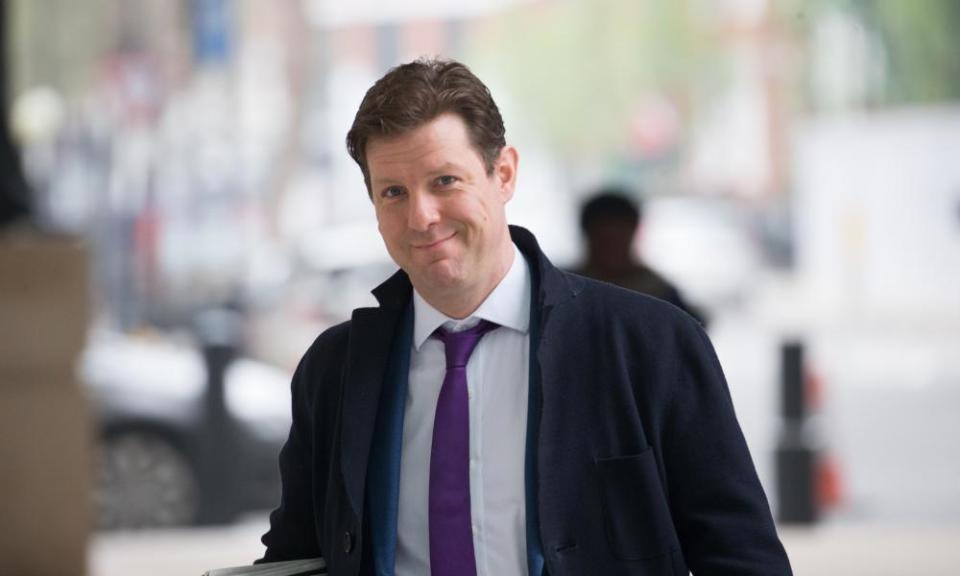Political journals ring the changes in a battle of ideas – and a fight for readers
The battle between Britain’s political magazines has intensified this summer as editorial changes at leading names on the newsstand mark a serious attempt to get ahead.
Last week, Alan Rusbridger, the former editor of the Guardian, was announced as the new editor at Prospect, the centrist magazine that was set up in 1995 by the author and social analyst David Goodhart.
Over at the New Statesman, the elder statesman of left-leaning journals, the award-winning Melissa Denes, also late of the Guardian, is to take control of features under the editorship of Jason Cowley, while plans are afoot to expand its international and political coverage.
The London Review of Books may be more of a literary journal but its political essays have in recent years become must-reads across Westminster and, with the recent departure of its founding editor Mary-Kay Wilmers, it too is going through a period of change.
The fog that blurs the British political landscape has never been more dense. And there are fresh perils to navigate, from divisive chasms inside the parliamentary parties to the generational rifts shaping public debate.

In treacherous times like these, the magazine-buying voter might well want a friendly guide. But which title to choose? Fraser Nelson, the Spectator’s editor, welcomes the journalistic gauntlet thrown down by Rusbridger. “Prospect is an excellent magazine with all to play for,” he said this weekend. Pursuing political dogma would be a mistake, he argues. “I’m very sceptical about the idea of politically aligned magazines. You can’t even define the Spectator as a Tory magazine. There is no market for that in this country. Whenever a publisher spots a political gap in the market, that title always comes to grief.”
With modern political tribes hard to define, let alone cater for, broadening readership is a struggle, especially when up against myriad print and online rivals. Alongside the established rightwing masthead of the Spectator are niche newcomers such as the Critic, born of schisms at Standpoint, as well as UnHerd and Reaction.
Over on the mainstream left, the New Statesman, set up in 1913 by Fabian Society luminaries George Bernard Shaw and Beatrice and Sidney Webb, is now flanked on either side at varying degrees of proximity by serious writing inside the Conversation and Tortoise, and the more determined socialism of Novara Media and the quarterly “radical red and green” Red Pepper. Meanwhile Tribune, the old journal of the Labour faithful, set up in the 1930s, is now also increasingly focused on harder left content.
So Prospect has its work cut out. After all, each title already believes it has something unique to say, or as Novara Media puts it: “Our goal is a simple one: to tell stories and provide analysis shaped by the political uncertainties of the age, elevating critical perspectives you’re unlikely to find elsewhere”. The real trick, then, is to appeal to a broad enough base.
Rusbridger, 67, spearheaded the move to free digital journalism at the Guardian during his tenure from 1995 to 2015 and is planning to nurture Prospect as “a cradle of ideas and thoughtful debate”. As his appointment was announced, he said the magazine was “an ever-more important space in a polarised society which sometimes feels as if it’s lost the art of listening.” Under Goodhart, Prospect’s contributors, including Timothy Garton Ash, Michael Ignatieff and John Lloyd, tackled difficult topics at some length. His successors, Bronwen Maddox and Tom Clark, have tried to offer the same.

Nelson predicts renewed success for Prospect if it can deliver well-written longer pieces: “The Spectator is a magazine of dazzling variety but most of our articles are much shorter. Prospect’s journalistic project is that some issues deserve more space.”
The best prospect for Prospect, Nelson adds, is to stay ideologically “heterodox”, but there are other lurking dangers for any political magazine. “There is a big problem if a publication is constantly loss-making. Then you’re looking at ‘sugar daddy’ owners, and they get in the way. Benefactors and sponsors are a problem, although as the Guardian model now shows, reader donations and membership can work as long as they know what they are buying into.”
Nelson took over the Spectator a decade ago amid claims it was in terminal decline. Bought by the billionaire Barclay brothers, Sir Frederick and the late Sir David, in 2004, the great majority of its revenue now comes from readers.
For the journalist and former Labour adviser Tom Baldwin, the greatest threat to a political title today is the sheer volume of comment out there. “There is a muddle and a cacophony of noise which makes it quite hard to develop our politics. We used to wait a week to learn the considered thoughts of a writer like Alan Watkins or Hugo Young. Now, with honourable exceptions in newspapers like Andrew Rawnsley or Gaby Hinsliff, they’ve already expressed their opinions elsewhere by the time they come to write.
“As a teenager obsessed with politics, I read Tribune. I don’t know where I would go now to find out where politics is heading. The New Statesman has its prejudices and the Spectator is good as long as you just want to know what is going on in Downing Street. There is a broader and yet also shallower pool of political commentary now than at any time in my life. This is a time of enormous challenges, so you would want journalism that reflects that.”
John Kampfner, one of Cowley’s predecessors at the New Statesman, hopes to read more political comment with an international perspective. As a consultant now working on the financially invigorated New European newspaper, he also wants less pure Westminster analysis and political reporting. “We need to get away from the myopic bias in British journalism,” he said. “There is often an extraordinary lack of contextualisation.”

 Yahoo Finance
Yahoo Finance 